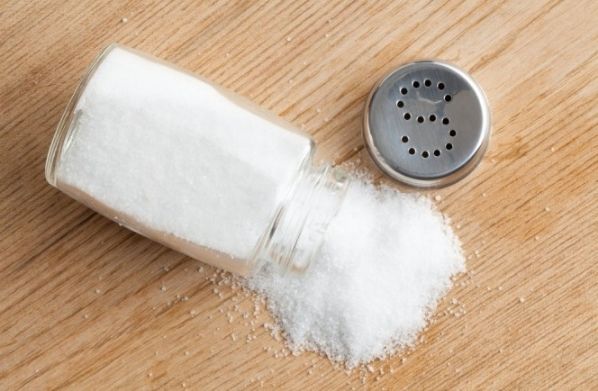I’ve written for years about the Government’s misguided attempts to regulate the salt content in food (see here, here, and here). My line of reasoning has always been to say that the government has no business telling the food industry how to formulate their recipes. I’ve pointed out that there are already plenty of low-salt options for consumers and that by requiring all foods to be low salt, the government is ignoring the fact that many people don’t need a low salt diet.
We all know that the government is really good at one-size-fits-all regulations, particularly when it comes to healthcare issues (anyone heard of Obamacare?), but the outcomes are rarely successful (anyone heard of Obamacare?). And now, there’s an even more compelling reason that the government should stop their anti-salt crusade: It might just kill you!
… according to studies published in recent years by pillars of the medical community, the low levels of salt recommended by the government might actually be dangerous.
“There is no longer any valid basis for the current salt guidelines,” said Andrew Mente, a professor at McMaster University in Ontario and one of the researchers involved in a major study published last year by the New England Journal of Medicine. “So why are we still scaring people about salt?”
…
The result is that as the federal government prepares its influential Dietary Guidelines for 2015, bureaucrats confront a quandary: They must either retract one of their oldest dietary commandments – or overlook these prominent new doubts.
The Post is correct in saying that the Dietary Guidelines Committee (DGAC) faces a tough quandary but in reality it shouldn’t be a quandary at all. Congress mandated the DGAC to provide “nutritional and dietary information and guidelines for the general public…based on the preponderance of scientific and medical knowledge currently available.” Read the IWF Policy Focus on the politicalization of the Dietary Guidlines process here.
The mandate doesn’t add any qualifying statements like “…unless you all disagree with the preponderance of the evidence at which point you can just tell the American public your personal opinions and wait for them to drop like flies.” Nope. The mandate is clear. The DGAC is to base the guidelines only on the most current scientific and medical information, period!
Unfortunately for the American public, that latest research on salt contradicts the political agenda of the federal agencies involved in the drafting of the Dietary Guidelines. That agenda includes regulating the food industry (no matter the health impacts), as well as considering other non-nutrition issues like climate change, sustainable farming, animal rights, immigration, pest control methods (Because swatting flies and setting mouse traps has a lot to do with kale being healthier than ice cream. Makes sense!).
Some will argue that politics will always cloud these deliberations. Perhaps that’s true. And that's the best reason why the government should extricate itself from the development of these guidelines. The development of the dietary guidelines should be done outside of the government, by a private medical or scientific entity. That’s the only way to avoid muddying the message or worse, giving Americans deadly advise.


